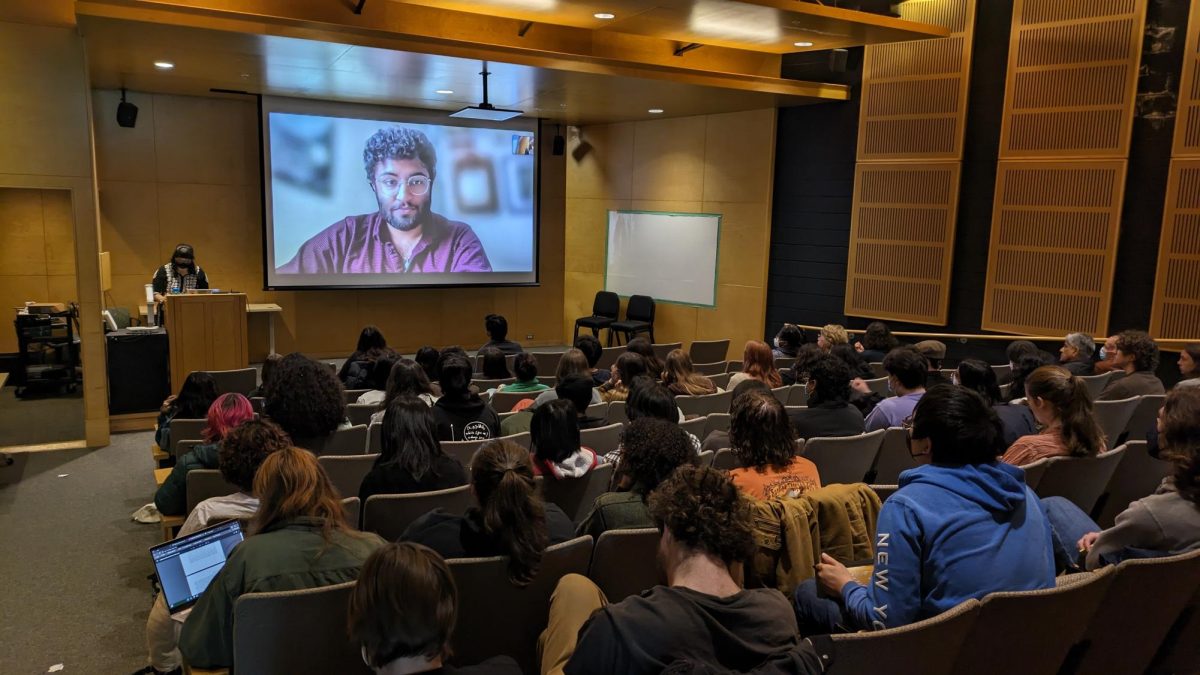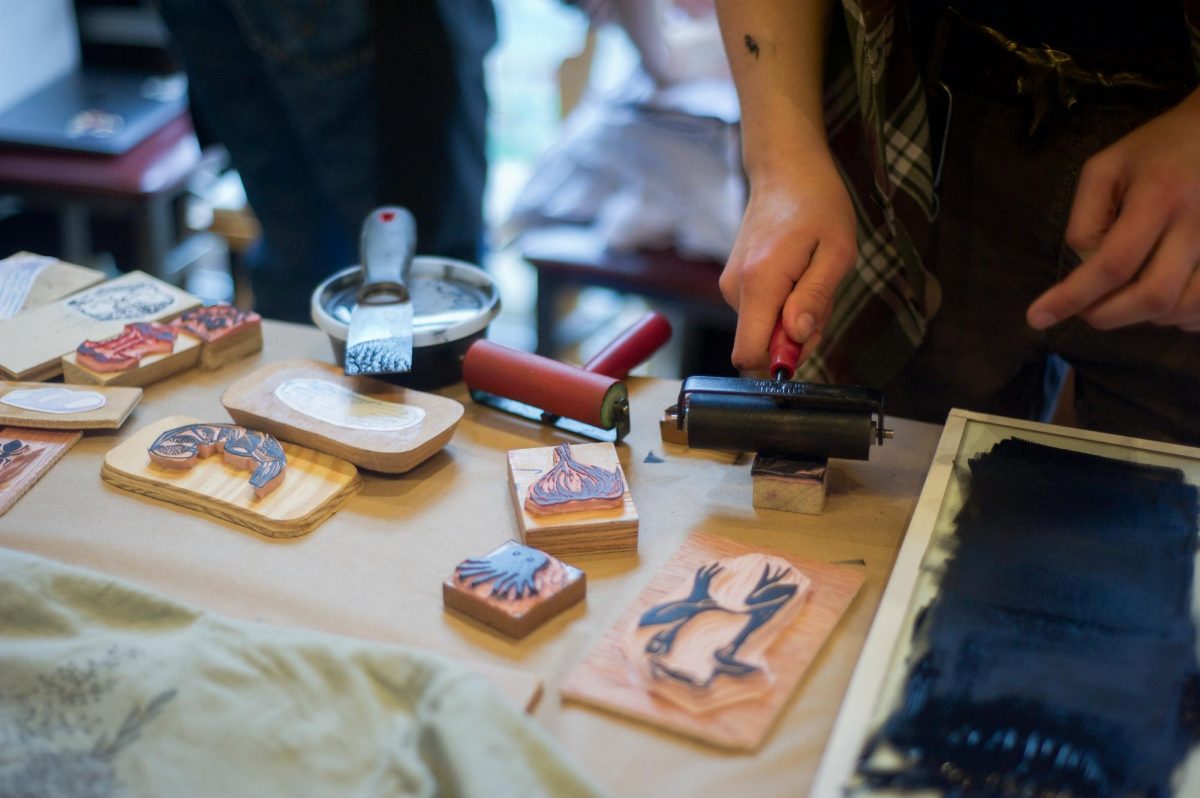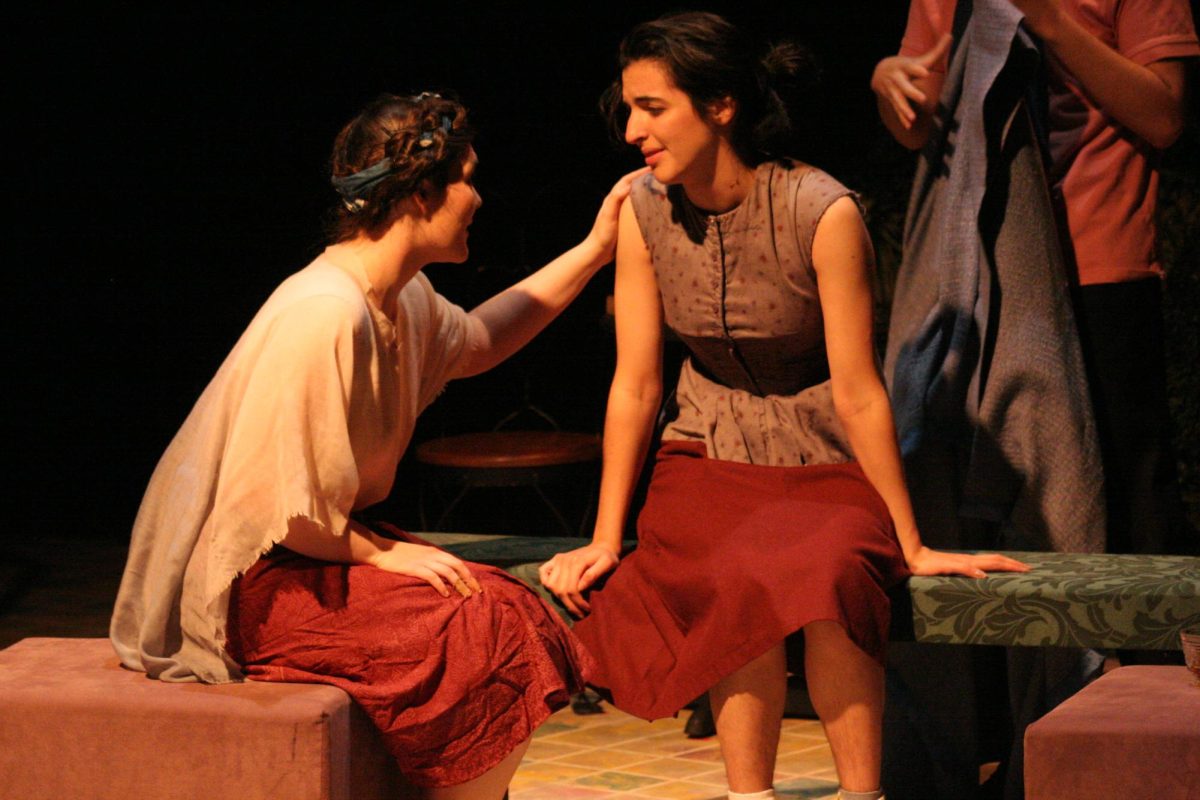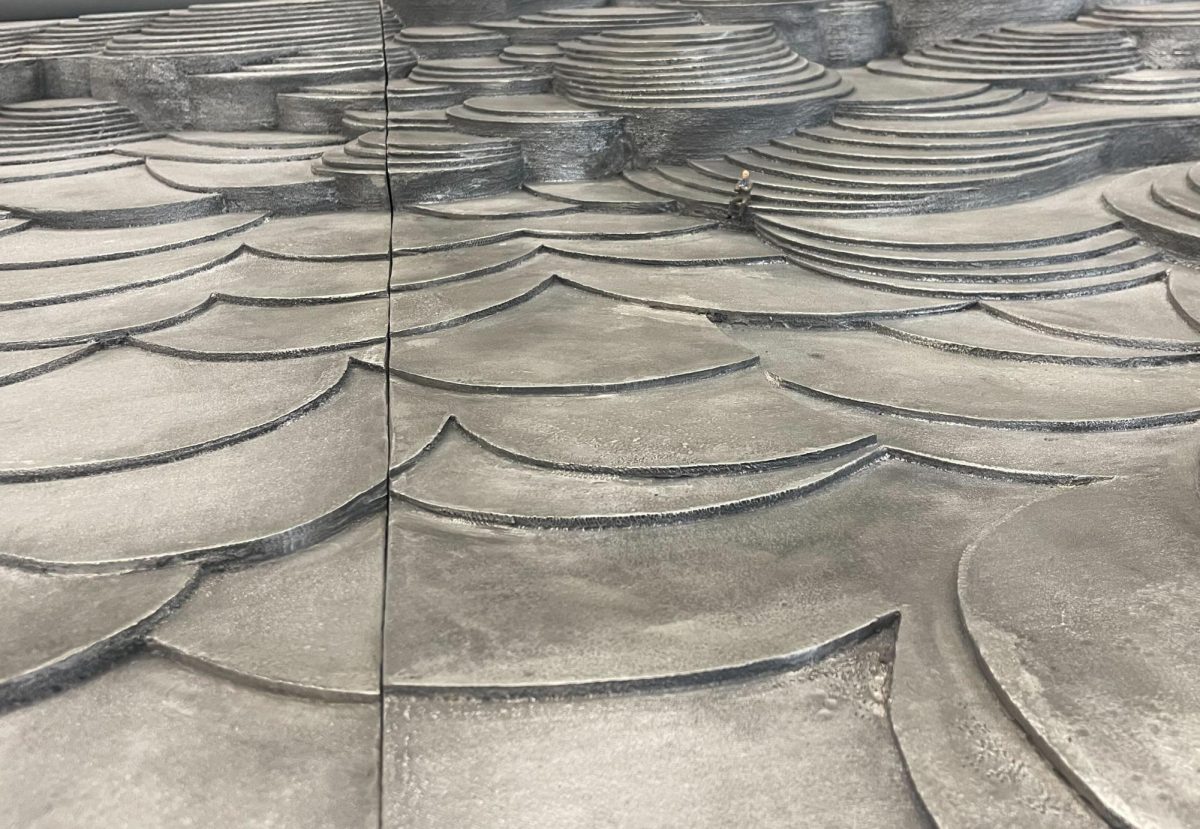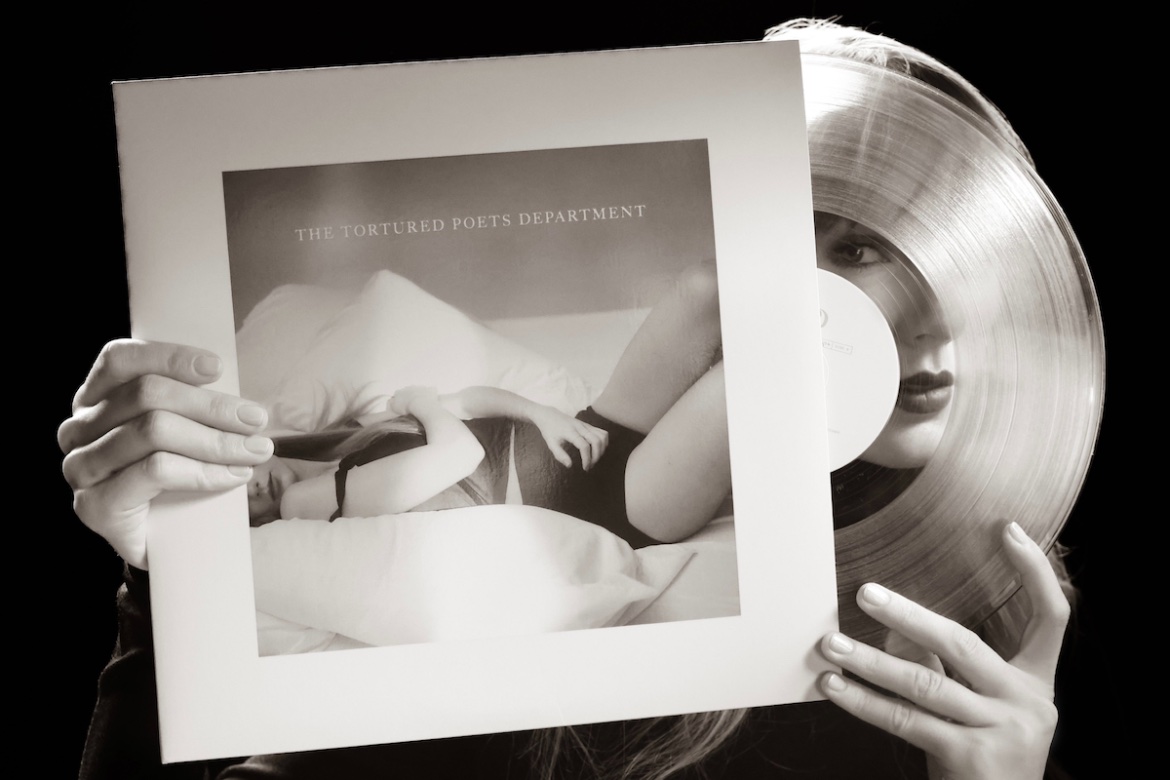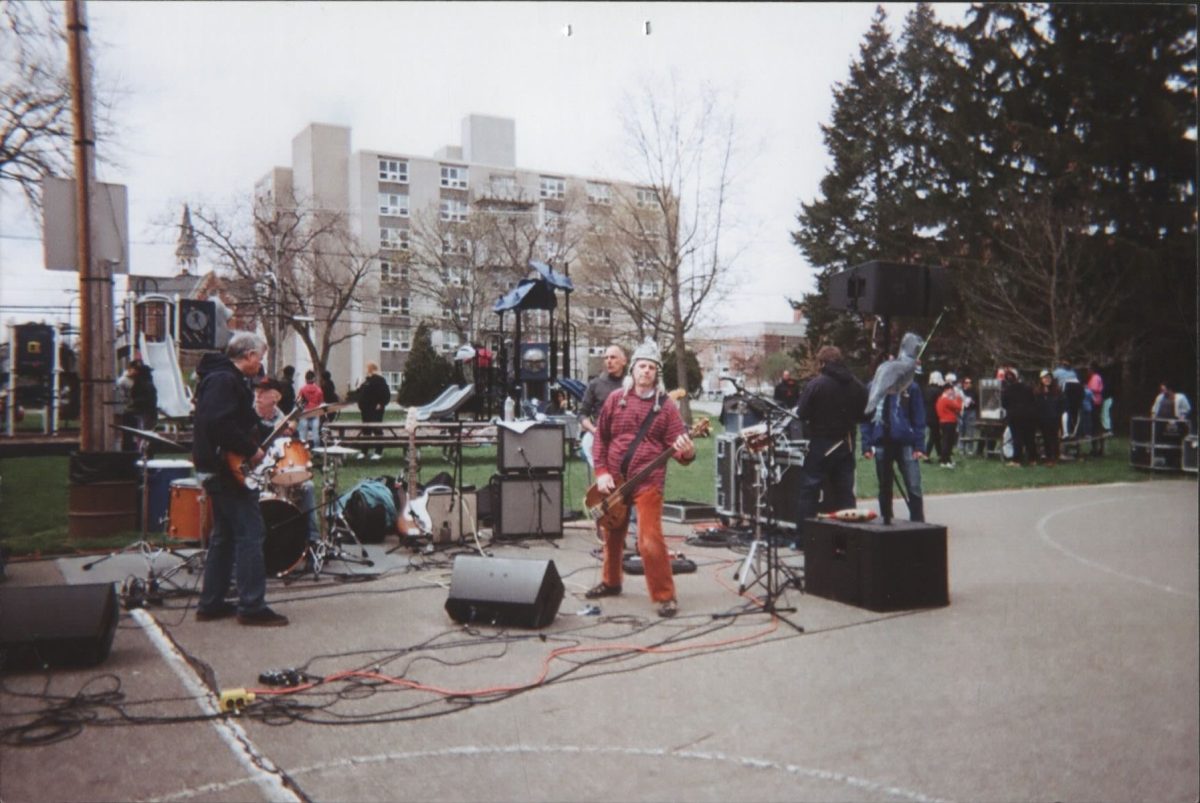Modern Music Guild Brings Noise to the Masses
April 29, 2011
The past two weeks have been packed with activity for fans of experimental music in Oberlin. In addition to shows sponsored by Concert Board and numerous student recitals, April has featured the lone two offerings of a lesser-known student organization: the Modern Music Guild. Started by Conservatory jazz guitarist Chris Riggs, OC ’07, as a weekly jam session for jazz and electronic musicians, the MMG has since grown to become a chartered organization designed to fill in the gaps between the experimental music booked by the Conservatory and other student groups.
On April 16,, the first of the two free MMG concerts featured prepared guitarist and electronic musician Kevin Drumm. Well-respected within experimental communities, Drumm drew an audience of roughly 50 people — enough to fill most of the seats in Conservatory Central 25, a nontraditional space for MMG, which usually takes advantage of the divine aesthetic and sonic resonance of Fairchild Chapel. But Drumm was very particular about his desired space, requesting a room with minimal reverb. The presence of four PA speakers instead of the usual two also indicated that this was not going to be a run-of-the-mill MMG concert.
Despite the sound system’s potential for earthshaking volumes, the opening duo of Conservatory senior Tristan Gordon and double-degree sophomore Ron Shalom opted to explore the realm of silence, playing barely audible high-pitched tones for the majority of their set. Tension filled the hushed room as the ticking of its clock became the performance’s centerpiece.
Columbus’s Mike Shiflet followed with an inspiring set of guitar and laptop drones, but the audience’s anticipation for Kevin Drumm could be felt. Drumm’s set proved to be worth the wait. Playing mostly tabletop electronics, his performance leaned toward the harsher side of his body of work, immobilizing the audience with its sheer transcendent volume. When asked about the set, College senior Neil Nayi said, “I don’t remember much about it. I remember that it ended with a high-pitched shriek. The rest of it was so mesmerizing that it caused a fugue-like state, disabling my memory.” His thoughts were reflected by the room’s applause, ecstatic at being able to witness a rare performance by a master of the genre.
Less than a week later, on April 21, MMG organized an appearance by English sound group Blood Stereo. Because of a scheduling error by the Office of Religious and Spiritual Life, Fairchild Chapel was once more disregarded in favor of a house show on College Street. Also well-attended, the audience at this second event was comprised of many familiar faces from the Kevin Drumm show — fans of experimental music both from Oberlin and the rest of Ohio.
And once again, student openers provided a memorable set. The performance of Neil Nayi and MMG President Chris Pierce involved crushed beer cans rotating on a turntable, chimes and a bell sounded by an electric fan, laptop, tape recorders and bowed materials among the materials of their musique concrète to make for a visually engaging performance.
Although Blood Stereo attracted a similar audience, its sound draws as much from the voice-focused sound poetry of Henri Chopin or François Dufrêne as noise music. The husband and wife duo of Dylan Nyoukis and Karen Constance used a four-track tape recorder to manipulate voice in addition to playing electronics and small, handheld instruments in a sonic melding of human and material.
These concerts were MMG’s only events for the semester, but this is not usually the case. In past years, the group has presented concerts on an average of a bimonthly basis, ranging from free jazz legends like Evan Parker and Ned Rothenberg to no-name noise artists.
When asked about this divergence from tradition, Pierce shared his frustrations about sparsely attended shows from the past. “I realized that we’re already dealing with music which is in the margins and relatively unknown, so if we’re going to use the money that we have to best effect, we should try to get the people from those margins that are most popular, most unique, most talented and will, most importantly, draw the largest crowd.”
An emphasis on quality is more costly and reduced the number of MMG shows possible with the group’s budget, but based on the successes of this month, this is a step forward for the organization.





